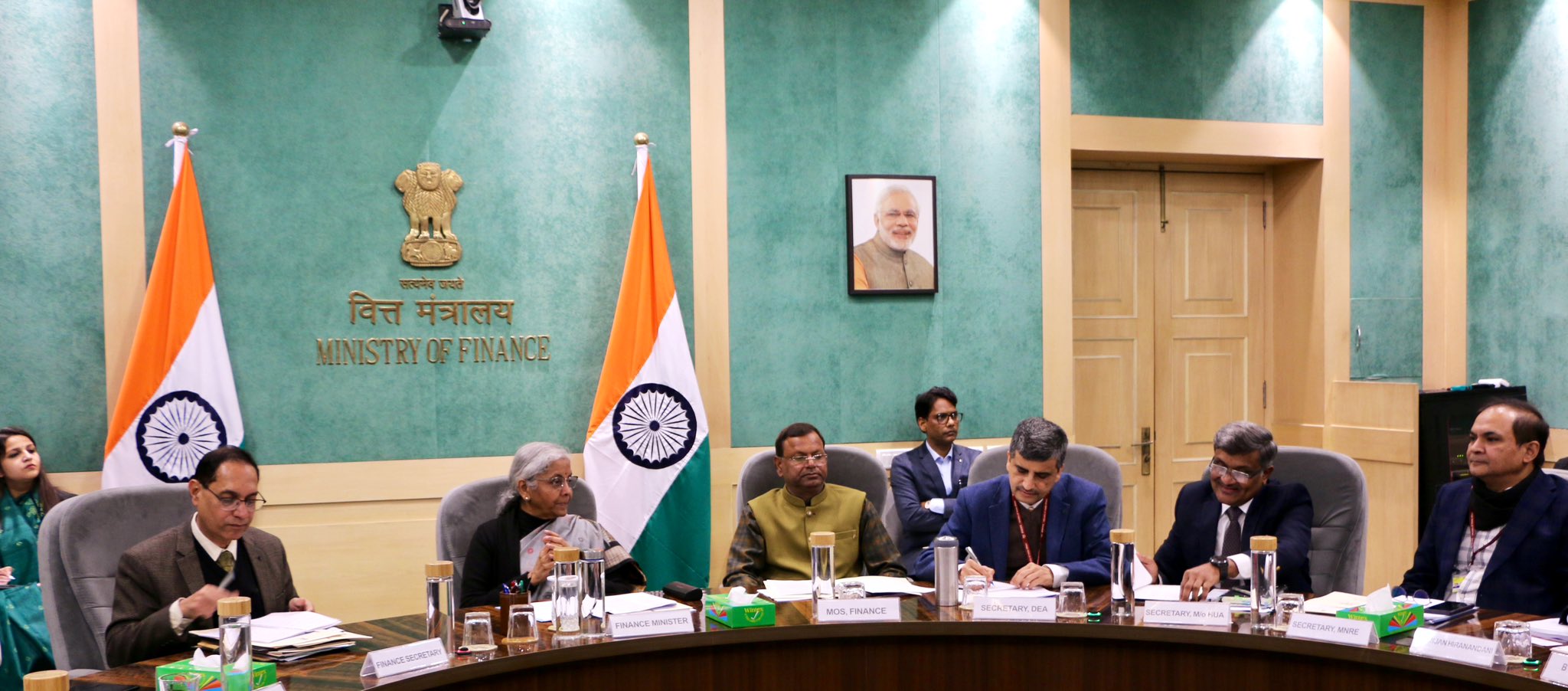
FinMin wraps up Pre-Budget talks with focus on jobs, growth, and demand
NEW DELHI : The Finance Ministry concluded nine rounds of Pre-Budget consultations on Monday, during which stakeholders proposed measures to boost consumption and employment, introduce tax concessions for individuals and MSMEs, and implement broad reforms.
The Union Budget for FY26 holds particular importance, given the backdrop of lower-than-expected growth in the second quarter and ongoing geopolitical uncertainties.
A diverse range of stakeholders—including economists, business owners, traders, and farmers—expressed hopes that the upcoming Budget would focus on addressing challenges related to investment, inflation, and infrastructure, while also enhancing the ease of doing business.
Economists have recommended introducing a comprehensive manufacturing policy to drive growth and employment, alongside supply-side initiatives like local cold chain storage to curb food inflation.
The pre-Budget consultations, led by Finance Minister Smt.Nirmala Sitharaman and senior finance ministry officials, witnessed participation from over 100 experts across various sectors. Industrialists and economists alike have advocated increased capital expenditure (capex) spending and tax exemptions to spur demand and increase purchasing power of people. Both the stakeholder groups, in separate discussions, have suggested ways to improve skilling initiatives such as setting up universities at the district level and having MSMEs with integrated townships.
The Confederation of Indian Industry (CII) has suggested tax exemptions for individuals earning up to ₹20 lakh annually and a reduction in excise duties on petrol and diesel to ease financial pressures on consumers and businesses.
Discussions with the trade sector have taken on added significance in the lead-up to the Budget, especially with the Donald Trump administration assuming office in the United States.
Exporters have called on the finance ministry to approve a US-focused marketing scheme worth ₹750 crore, aimed at generating an additional $25 billion in exports to America over the next three years.
The exporters have called for continuation of the export boosting scheme–interest equalisation, which is operational till December 31. They also sought additional funds for marketing and trade promotion of certain export items and income tax relief for MSME manufacturing units, among others.
Farmers and agriculture sector stakeholders have asked the finance ministry to double the income support under PM Kisan Samman Nidhi to Rs 12,000 and reduce costs on input materials.
The agriculture and services sectors had emerged as key growth drivers in the second quarter of FY25. Sustained agriculture output, economists feel, is the key to driving growth in the second half of this financial year.
Several farm leaders have also sought scrapping of the goods and services tax (GST) on agricultural inputs, such as seeds, manure and pesticides.
The Finance Industry Development Council has called for major reforms to ease operational burden and improve liquidity of non-banking financial companies (NBFCs).
One of the proposals has been the reduction in the loan amount threshold for enforcing security interest under the SARFAESI Act, from Rs 20 lakh to Rs 1 lakh.
Health and education experts raised issues related to cancer care equipment, health and education spending, and increased focus on teachers’ training under the National Education Policy (NEP) 2020.

